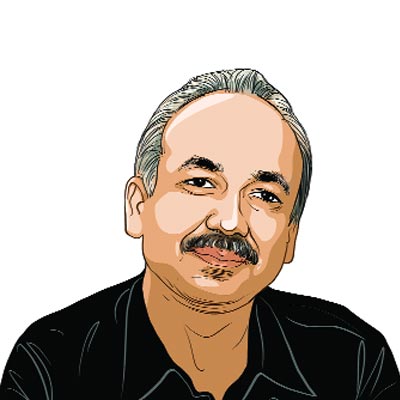Nepal gets its first woman Prime Minister, Sushila Karki
Karki, 73, was being sworn in on Friday night itself, and her first task would be to restore order after violence on the streets led to attacks on political leaders and their homes and properties.
Ending the political vacuum in Nepal following the fall of the K P Sharma Oli government after violent protests earlier this week, former Supreme Court Chief Justice Sushila Karki was sworn in as the interim Prime Minister on Friday night, making her the first woman to lead the country.
Karki, 73, was administered the oath of office by President Ramchandra Paudel who also dissolved the House of Representatives.
monthly limit of free stories.
with an Express account.
The interim government has been asked to hold elections to Parliament in six months.
Karki is likely to expand the Cabinet on Saturday with Kul Man Ghising as the new Energy Minister. An engineer, Ghising, as Chief Executive Officer of the Nepal Electricity Authority, was credited with effective power management and distribution. He was later sacked by Oli.
Om Prakash Aryal, a lawyer, is also likely to join as Minister. The new Cabinet may not include representatives of the mainstream political parties.
Within hours of Karki’s swearing-in, India welcomed the formation of the interim government, saying it was hopeful that this would help in fostering peace and stability in Nepal.
The Ministry of External Affairs, in a statement, said, “We welcome the formation of a new Interim Government in Nepal, led by Right Honourable Mrs Sushila Karki. We are hopeful that this would help in fostering peace and stability.”
“As a close neighbour, a fellow democracy and a long term development partner, India will continue to work closely with Nepal for the well-being and prosperity of our two peoples and countries,” the MEA statement said.
Earlier, on September 9, within hours of the fall of the Oli government in Kathmandu, Prime Minister Narendra Modi had chaired a meeting of the Cabinet Committee on Security to discuss the situation in Nepal and said the violence there was “heart-rending”. He had also expressed “anguish” that “many young people” had lost their lives in the protests. Underlining that “stability, peace and prosperity” of Nepal was of utmost importance, he had appealed to the people to “support peace”.
In Kathmandu, for the first time, all former Prime Ministers barring Baburam Bhattarai – some of them still in protective custody of the Nepal Army – were not present at Karki’s swearing-in ceremony.
Major political parties including the Maoist Centre led by Pushpa Kamal Dahal ‘Prachanda’, Nepali Congress under Sher Bahadur Deuba and the CPN (UML) of Oli stayed away from the ceremony, signalling their opposition to President Paudel’s decision.
The President’s office said the new political decisions have been taken in deference to the wishes of the youths in exercise of power inherent in the President.
Paudel was reluctant to dissolve Parliament, but Karki insisted. Her first task would be to restore order after violence on the streets led to attacks on political leaders and their homes and properties.
Earlier in the day, Karki made it clear that she would head the interim government only if she was allowed a fair investigation into corruption in high places and excessive use of force by police that led to the death of at least 20 protesters.
“I will not be interested in the job if my hands and legs are tied and I am totally immobilised,” Karki was quoted as having said at a high-level meeting hosted by President Paudel and attended by Oli, Deuba and Prachanda. A source said the three top leaders were not very keen to back Karki’s precondition for a high-powered probe into corruption and excessive use of force by the police as that could discredit their parties.
Leaders of the Gen Z protest groups and Kathmandu Mayor Balendra Shah had already endorsed Karki as chief of the interim government. The Gen Z leaders rejected the stance of the three major political parties and warned the President not to undermine them or the message of their movement.
Soon after, Paudel and Karki began another round of talks to chart a course and administer her the oath of office later at night.
Nepal Army chief General Ashok Raj Sigdel played a major role in bringing multiple Gen Z groups and other leaders to the table to facilitate the formation of a government not led by a leader of any mainstream party.
